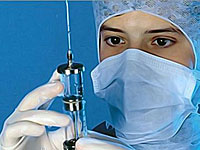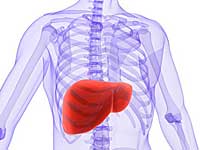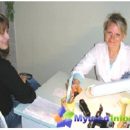How is hepatitis a? How not to get infected and protect relatives from illness? Answers to these questions you will find in the article.
Content
 Hepatitis A in developing countries with low levels of economic and social development is, above all, children's infection. Most children in these countries move hepatitis A to the 10th age and acquires lifelong immunity.
Hepatitis A in developing countries with low levels of economic and social development is, above all, children's infection. Most children in these countries move hepatitis A to the 10th age and acquires lifelong immunity.
As shown epidemiological studies, the number of registered manifest forms (when there are typical disease manifestations) is significantly lower than those who have antibodies to hepatitis A. This means that many children transfers infection in a rude form and during this period hepatitis is not recognized.
In developed countries hepatitis A, also called «Dirty hand disease», It is difficult to get difficult because of the high culture of the population and the wonderful work of utilities. Therefore, persons having antibodies to this infection are very few, from this and the risk of getting into contact with the hepatitis virus is quite high.
It happens more often during trips and tourist trips to hot countries, African and Asian resorts, in the Republic of Central Asia.
To clarify the likelihood and degree of infection risk, but rather, in order to resolve the issue of the need for vaccination, a blood study is carried out for the presence of antibodies to the hepatitis A virus of the Immunoglobulin G (Anti - HAV IgG). If these antibodies are found in the blood, this means the presence of immunity to the virus, that is, the risk of infection is zero and vaccination against hepatitis and not needed. If there is no antibody, then the risk is. Welcome to vaccine!
CDC epidemiologists allocate the following risk groups / vaccination requirements
- Family members (household) infected with hepatitis A virus
- Persons with infected sex contacts
- Persons, and especially children living in regions with a high prevalence of hepatitis A
- Persons heading to countries with high incidence hepatitis A
- Men practicing homosexual contacts
- Persons who use drugs (injection and injectable)
How not to get infected
You can contact patients by observing elementary hygiene rules. However, children are better to isolate from patients.
Not sick with hepatitis A when infection, it is possible only if there was a vaccination against hepatitis A and there is a sufficient titer of antibodies. Then, when the virus gets into the blood, it will be neutralized by antibodies.
If there are no protective antibodies, and viruses are already swimming in the blood, then hepatitis cannot be avoided.
There is a special drug - immunoglobulin, which can be introduced immediately before possible infection or within 2 weeks after infection. This will allow for a short time to protect either from infection, or on the development of the disease in the case.
All family members are encouraged to examine on antibodies to hepatitis A (Anti - Hav IgG). In the absence of these antibodies, vaccination is required.
Do not forget to comply with the simplest hygiene rules: wash your hands with soap after visiting the toilet and use the bathroom, after care for a small child, before eating and cooking and cooking.









